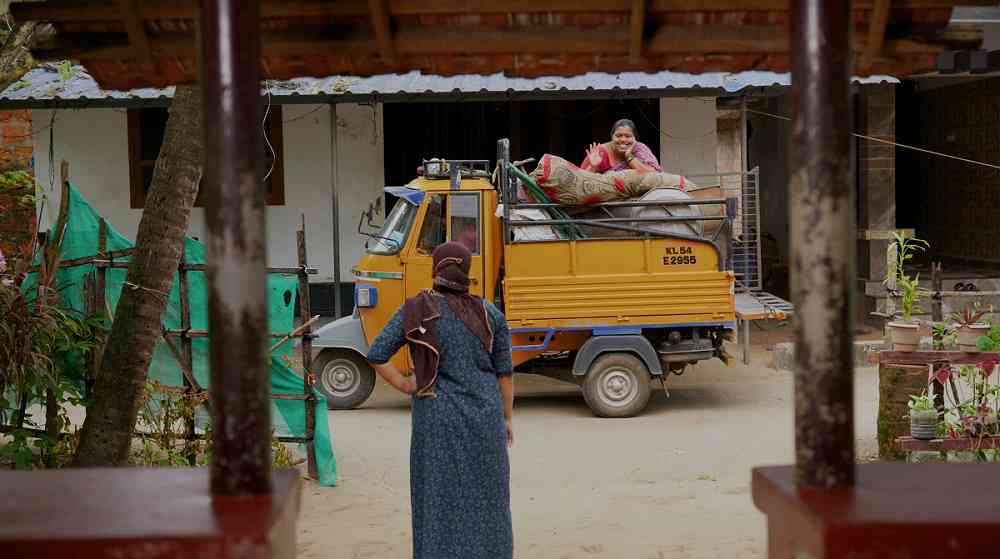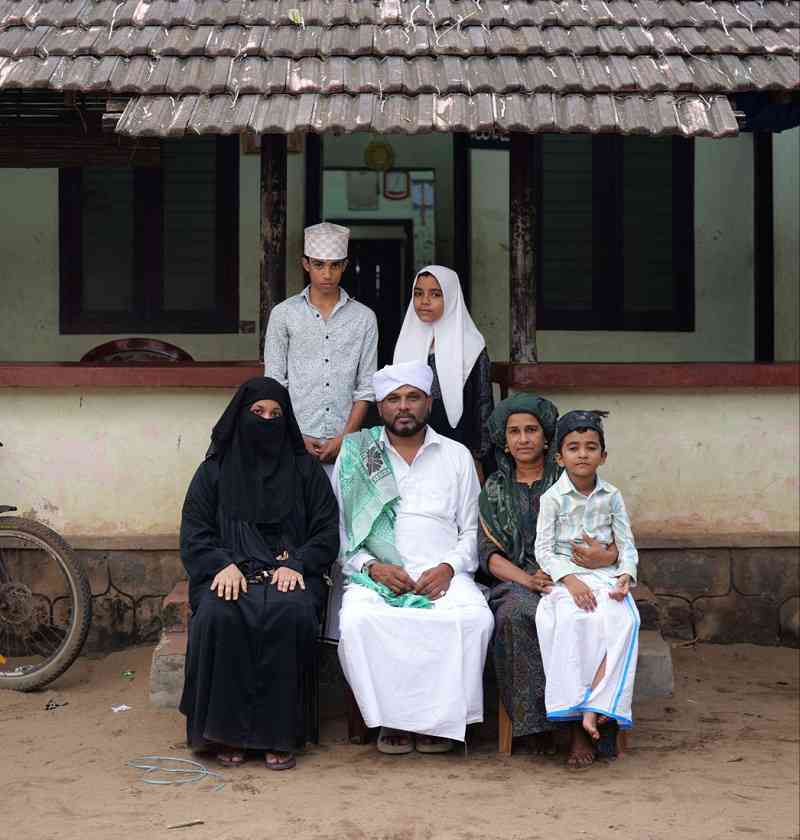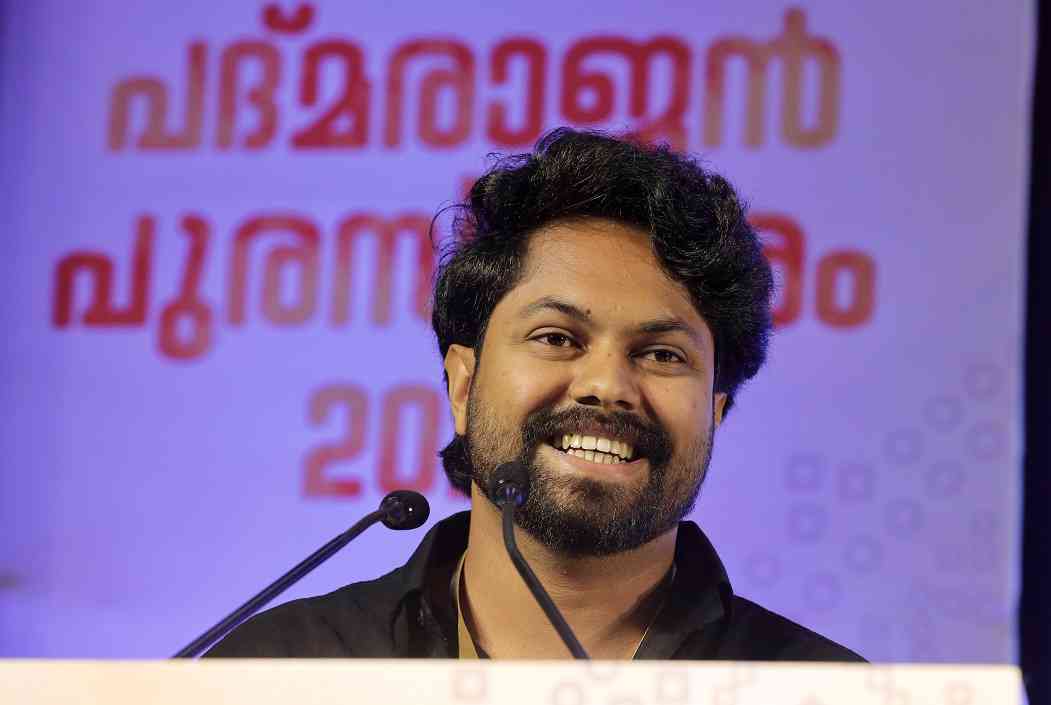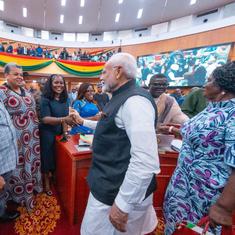Fathima knows her place in her orthodox household. When in the presence of her husband Ashraf, a madrasa teacher and traditional healer, she keeps her voice low and behaves in a docile manner. When Fathima is with neighbours and friends, she is her natural, ebullient self.
Fasil Muhammed’s Malayalam-language Feminichi Fathima (Feminist Fathima) is filled with insightful details about the power dynamic within conservative families. Muhammed’s powerful debut feature is a modestly budgeted and richly layered chronicle of repression and rebellion.
Feminichi Fathima is set in Ponnani town in Kerala’s Malappuram district. Fathima (Shamla Hamza) lives with Ashraf (Kumar Sunil), three children and her mother-in-law.
An already overwhelmed Fathima reaches breaking point over her young son’s bed-wetting habit. Fathima’s disgust at having to deal with a soiled mattress and Ashraf’s callous response to her situation set off a chain of responses that neither Fathima nor Ashraf can control.
“Whenever Fathima communicates with her husband, his patriarchal privileges affect her tone,” Muhammed pointed out. “No such problem disturbs her tone when she deals with her friends and neighbours.”
Muhammed’s screenplay examines with humour and perspicacity Fathima’s gradual journey from submissiveness to revolt. Reluctant to pop out the fourth child that Ashraf wants, the oppressed housewife confronts the inescapable truth that she too is utilitarian and disposable, just like the hated mattress. Fathima finds supporters in her feisty neighbour and a Tamil woman who buys scrap.
“Fathima is a traditional lady but at a particular point in her life, she is forced to stand up for her basic needs,” Muhammed pointed out. “This makes her rebellious and strong. When she decides not on depend on Ashraf, her tone towards him changes. This indeed is the biggest outcome of the movie.”
The film is expected to be released in theatres over the next few weeks.

In addition to following its heroine’s experiences, Feminichi Fathima pays attention to the role played by technology in a traditional milieu. Ashraf warns his children to watch only content that is “halal” – acceptable to Islam.
The 97-minute film gently skewers Ashraf’s self-serving hypocrisy, while also revealing the emotional impact of his insensitivity on his spouse. In some ways, Feminichi Fathima pays homage to fellow Malayalam director Jeo Baby’s trailblazing The Great Indian Kitchen (2021), which exposes the drudgery involved in housework.
Ashraf, who is barely able to make ends meet and worries that he will lose his standing in his community if his wife starts to disobey him, is a familiar figure in Indian homes, Muhammed pointed out. Rather than portraying Ashraf as a villain, the film tries to understand his position, while not making concessions for his behaviour.
“Ashraf is following the rituals of patriarchy – he too is a victim of the patriarchal system,” Muhammed observed. “Many men around me contributed to the character’s development. He is just following his religion, and his main problem is his inability to change according to the new world.”
While Feminichi Fathima takes place in a Muslim community, and looks at the role played by both religious practices and obscurantist beliefs, the story is “universal”, Muhammed said.
“I don’t want to limit this movie to a particular community or region,” Muhammed added. “Basically, this is a movie against patriarchy.”
Art has “no boundaries or limitations based on caste, creed or religion”, the filmmaker said. “We must avoid labelling movies on the basis of religion. Feminichi Fathima challenges those people who do not want to change with the times.”

The messaging is strong but not strident – Muhammed maintains an even tone through observational comedy and relatable characters who are mostly played by non-professionals, except for Shamla Hamza and Kumar Sunil.
The question of financial autonomy emerges through the characters of the scrap dealer as well as a young Muslim woman who has found a way to be respectful of her faith while earning money from her social media account.
“I strongly recommend that every woman be economically independent – this recognition changes Fathima’s tone with her husband,” Muhammed asserted. “This decision-making power is the ultimate requirement for a common woman rather than jumping into quarrels or big fights.”
The 28-year-old director, who calls himself a “film dreamer”, started his career as an editor before making short films and YouTube series. “My cinematic sensibility has always been attuned to stories that resonate with authenticity,” Muhammed said. “Movies that evoke emotions, spark reflection and linger long after the credits roll – these are the ones that truly capture my attention.”
Like PS Vinothraj’s debut Koozhangal (2021), Muhammed was inspired by an incident that happened to his sister. He recalls his sister scolding her son for wetting his bed and pointing out how much trouble the smell of urine caused her.
Muhammed was deeply moved by his sibling’s plight. “When I saw her carrying the bed outside with so much pain on her face, I got the idea for the movie,” he said. “Keeping this as the central theme, I crafted the script by adding many more incidents that I witnessed around me, which I really wish would change.”

Just cast neighbours and acquaintances were cast for the supporting roles, friends stepped in to help Muhammed complete the film. Apart from writing and directing Feminichi Fathima, Muhammed has edited and produced the movie.
“I took on the financial challenge from the very beginning by being part of the production,” Muhammed said. “Later, two of my friends, Thamar KV and Sudheesh Scaria, joined the production.”
Feminichi Fathima was premiered at the International Film Festival of Kerala in December 2024, where it won five awards. Muhammed hopes that a theatrical distribution deal will fall into place soon.
“My movie has got exposure only to film festival audiences,” he said. “The film was a revelation for my family. I also got positive feedback from many Muslim men at other festivals. I am expecting positive discussions from the movie’s content. And I want such discussions to happen, since these topics are important and needs society’s attention.”










